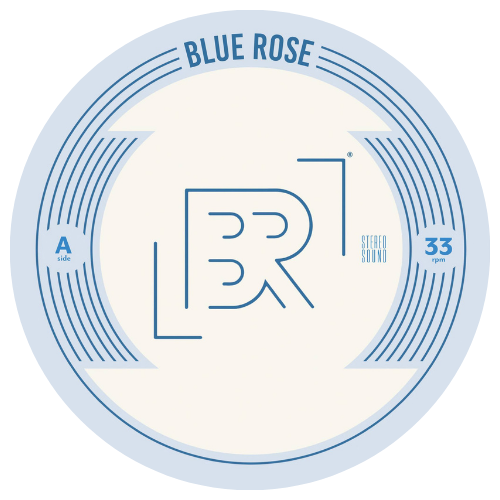You have to have some charm to play classic country — you have to have respect for your instrument,” says Shannon McNally, who is talking to me on the phone about her new full-length The Waylon Sessions. The album features songs written and recorded by the great outlaw-country singer Waylon Jennings. I’m catching up with McNally as she’s making her way up I-55 out of Jackson, Miss., where she’s played a show, back home to Nashville by way of Memphis.
I think I get what she’s telling me about charm. Indeed, McNally found her own way to perform the Jennings songs that make up her latest album. McNally and I trade travel notes about the impossibility of splitting the right angle to save time between Jackson and Nashville, and you can tell she knows the territory. She lived in New Orleans and Mississippi before moving to Nashville in 2017. As I tell her, The Waylon Sessions is a remarkable recasting of well-known material. It was cut in Nashville, and it’s a Nashville kind of idea, but the concept doesn’t get in the way. McNally recorded The Waylon Sessions over four days in September 2019 in Nashville with a group of musicians that included guitarist Kenny Vaughan, bassist Chris Scruggs and former Jennings sideman Fred Newell, who played pedal steel. The Waylon Sessions also includes guest turns by the likes of Jessi Colter and Rodney Crowell — and it’s not hackneyed, as in the tradition of tribute albums featuring many famous people who usually add nothing to the proceedings. It’s a work that matches McNally’s planed, underplayed vocal style to the minimalistic sound of the session cats, who render Jennings’ music in strict time, with few flourishes. The Waylon Sessions gives McNally a chance to make like a country singer, right down to her subtle phrasing and gift for understatement. Listen to the way she finesses the album’s opener, “I’ve Always Been Crazy,” a 1978 country hit Jennings wrote. Her performance captures the vulnerability that lay beneath Jennings’ bravado. Her Nashville move clarifies the artistry of a vocalist and guitarist who has — like many other artists who have been slotted into the Americana category — proved elusive as a marketable commodity. McNally was born in New York in 1973, and signed her first record deal in 1997. Her major label debut, 2002’s Jukebox Sparrows, bears the mark of corporate interference, but at least one tune, the gorgeous “Start All Over,” gave a hint of her future style. She had been playing and recording Jennings material before she started work on The Waylon Sessions a couple of years ago. She cut a version of Steve Young’s “Lonesome, On’ry and Mean,” which Jennings covered in 1973, with pianist and producer Jim Dickinson in Mississippi in 2009, and the song has long been a staple of her live show. As McNally tells me, she was inspired to record The Waylon Sessions after she sang two country tunes at a June 2019 benefit at Nashville’s The Basement East that also featured Luther Dickinson and Joshua Hedley. “As I was coming off stage, I thought, ‘Man, those guys [in the band] are really good,’ ” she says. “It sounded fantastic, and I thought, ‘I could have done anything I wanted with that band. I could’ve done Waylon Jennings songs.’ ” She made the deal with her label, and she says the project came together fast. The Waylon Sessions adds McNally’s sensibilities to a set of songs that combine romanticism with a feel for the steep downside of self-determination. It’s her most straightforward record to date, and its pared-down sound feels suitably Waylon-esque. Her new record makes a nice contrast with her 2010 Western Ballad, on which producer and co-writer Mark Bingham functioned in much the same way as did, say, Daniel Lanois when he added texture to Emmylou Harris’ Wrecking Ball and Willie Nelson’s Teatro. McNally is a savvy record maker who has always had good taste in producers. Her work with Bingham takes her into the pop-blues-country avant-garde. On the other side of the equation, she’s collaborated with Mac Rebennack (better known as Dr. John), who co-produced her 2013 album of Bobby Charles songs, Small Town Talk, and with Crowell, who produced 2017’s Black Irish. “He was a radical purist, let’s put it that way,” she says about Jim Dickinson. “He liked everything raw and meaningful. I’ve come to realize I have a bit of a type, I guess, for producers. They’re characters, you know — they’re mad scientists, all of them, and principled outlaws who paint outside the lines.” McNally produced The Waylon Sessions, and it sounds like she’s learned the lessons of Dickinson and Bingham. In one sense, the album doesn’t sound produced at all, but the decision to make the performances streamlined and disciplined keeps her within the strict aesthetic Jennings applied to his classic records. The Waylon Sessions stands tall with Chuck Prophet’s idiosyncratic 2007 Jennings album Dreaming Waylon’s Dreams, making it no ordinary tribute record. The album proves that, even in modern-day Nashville, you can still be an outlaw, as long as you don’t try too hard.
